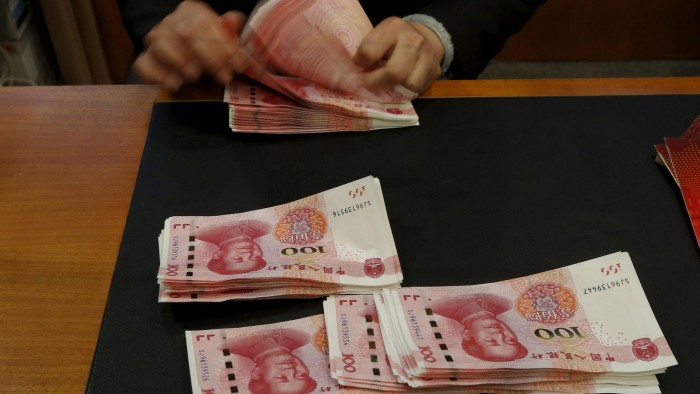Unlock the Editor’s Digest for free
Roula Khalaf, Editor of the FT, selects her favourite stories in this weekly newsletter.
Issuance of renminbi debt outside mainland China is heading for a record high this year, as low Chinese interest rates make the currency an attractive funding option and businesses and bond investors rethink their exposure to dollar assets.
Offshore issuance of renminbi debt — known as “dim sum” bonds because most are issued in Hong Kong, where the Cantonese cuisine is popular — has hit Rmb475bn ($66.3bn) so far in 2025, on track to surpass last year’s record high, as issuers take advantage of borrowing costs near record lows.
“We will continue to see an accelerated pace of dim sum issuance,” said Jason Pang, senior portfolio manager and Asia local rates and foreign exchange lead at JPMorgan Asset Management.
He said more trade now occurred between Asian countries and China than between China and the US, meaning more transactions take place in local currencies and companies have greater need for renminbi.

Singapore’s state investor Temasek, US insurer Chubb and Swiss food conglomerate Nestlé have raised money through offshore renminbi bonds this year, with issue sizes and tenors increasing in a sign the market is maturing. Issuance has surged since 2022, when Chinese lending rates dropped below those of the US.
Foreign banks, which use renminbi both for funding and for client needs, have issued more than Rmb60bn of debt this year, led by Barclays, which has raised close to Rmb9bn in 2025.
Tapping China’s offshore bond market was attractive for issuers seeking flexibility in how they deploy capital, said Xixi Sun, head of greater China bond syndicate at Citi. Businesses need official approval before they can move money out of China, but there are no such rules for renminbi raised in Hong Kong, meaning the funds can easily be converted into other currencies.
It was cheaper for companies to borrow renminbi and convert them than it was to raise funds in dollars because of the difference in interest rates, said Tim Fang, greater China head of debt capital markets at Crédit Agricole. The average coupon rate for offshore renminbi debt issued this year is 1.83 per cent, compared with 4.99 per cent for dollar debt.
The primary source of demand for dim sum bonds has been through the Bond Connect programme, which allows Chinese investors to access debt issued in Hong Kong. Bonds issued in Hong Kong offer higher returns than mainland counterparts because of lower liquidity, making them attractive for Chinese investors on the hunt for higher yields.
In June, the Bond Connect scheme was expanded to allow additional types of investors, including insurance companies, to buy bonds in Hong Kong, helping to drive a surge in issuance. Bond Connect is expected to double its annual quota for total transactions from Rmb500bn to Rmb1tn this year.
Renminbi-denominated assets were an attractive alternative at a time when investors are looking to diversify away from the dollar, said David Yim, head of capital markets for greater China and north Asia at Standard Chartered.
Yifei Ding, a fixed-income portfolio manager at Invesco, added that renminbi-denominated bonds also had “low correlation” with fixed-income assets in the rest of the world.

Still, the dim sum bond market is small compared with China’s onshore fixed-income market. For large institutional investors, mainland markets were still the primary option, said Raymond Gui, Asia head of fixed-income portfolio management at UBS Asset Management.
But there was strong support from the Hong Kong government for the city’s growth as an offshore renminbi hub at a time when the role of the dollar in global finance was being questioned, said bankers.
“There is a drive to continue to expand this market and grow this market,” said Crédit Agricole’s Fang.
https://www.ft.com/content/e5e96699-ebc1-4196-aca0-6f727c77a49c



